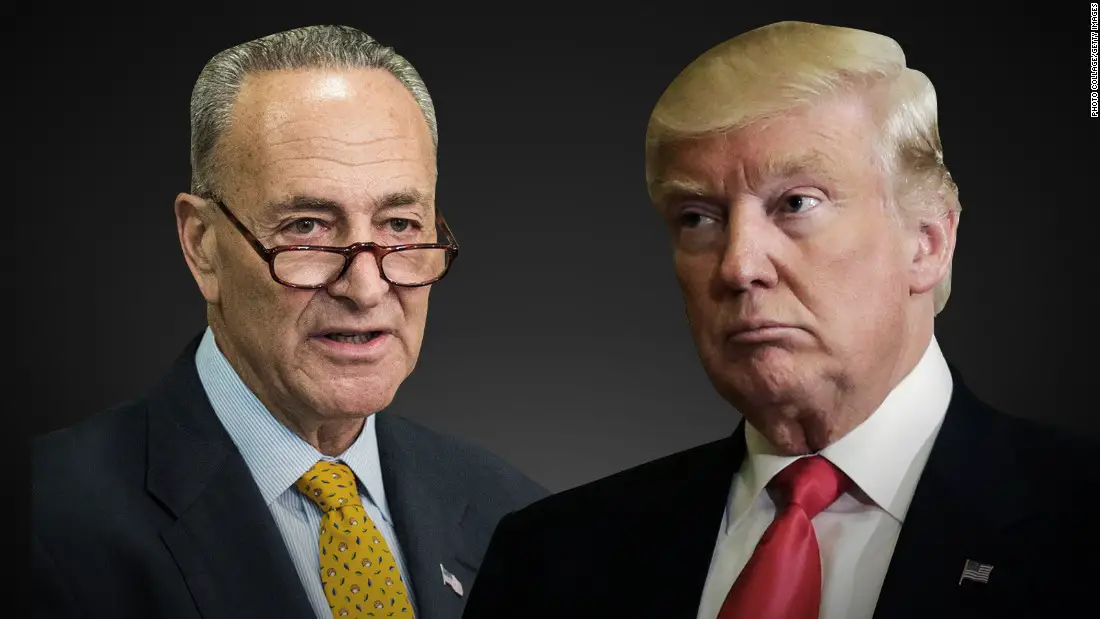Much is being made about the shift in talking points coming from the White House following the collapse of the first attempt by Republicans during the new administration to repeal and replace ObamaCare. As the widely criticized repeal bill went down in flames on Friday, pulled from the floor before a likely failing vote could take place, the White House was repositioning itself on the health care debate.
The Wall Street Journal reports:
The White House sent a warning shot to congressional Republicans that it may increase its outreach to Democrats if it can’t get the support of hard-line conservatives, a potential shift in legislative strategy that could affect drug prices, the future of a tax overhaul and budgetary priorities.
Days after the House GOP health bill collapsed due to a lack of support from Republicans, White House Chief of Staff Reince Priebus brought up the idea of working with Democrats multiple times, leaving little doubt that the White House intended to send a message to the hard-line Republican flank.
“This president is not going to be a partisan president,” Mr. Priebus said on “Fox News Sunday.” He said that while “I think it’s time for our folks to come together, I also think it’s time to potentially get a few moderate Democrats on board as well.” [Emphasis added]
President Donald Trump could face hurdles in enacting his agenda if he can’t broaden his coalition, even though Republicans control both chambers of Congress. Markets have rallied since his election on the prospects that he would drive through tax cuts, boost infrastructure spending and cut regulations, giving a jolt to the economy.
Basically there are two options going forward. Trump can either try to rope in the conservative wing of House members known as the “freedom caucus,” or he can tilt the other way and try to bring in some moderate Democrats. Either way, he’ll have to overcome the impasse for legislation which exists, as it always has, between the furthest ends of the political spectrum. On health care, concessions to the House Freedom Caucus made the bill less palatable to moderate Republicans, and vice-versa.
My question here is whether the Trump administration is serious, or is basically warning the GOP that Trump doesn’t necessarily care who he works with, so long as he can sign bills and claim his agenda is being enacted. On healthcare, I can see him cutting some deals, specifically on things like negotiating drug prices, a policy that Democrats have been pursuing for years, but Republicans have resisted on the grounds that the federal government shouldn’t be setting market prices for prescriptions. However, it’s entirely plausible that Democrats could get on board, and peel away some moderate Republicans and voilà, some of Trump’s campaign promises might become law.
The reality, however, is still such that working within the GOP’s majorities is the best possible chance Trump has for pushing his agenda. Even for issues that may be of importance to Democrats, there will be reluctance to provide Trump with any kind of political victory that would give him momentum for other agenda items.
It will be interesting to see how President Trump and Republican leaders in Congress move forward on the next legislative push. As Trump almost humorously said during his televised statement last Friday, he “learned a lot” during this first legislative push of his presidency. I should certainly hope so since working with Congress is a huge portion of the President’s job description, and understanding the workings of how legislation is passed might be somewhat helpful in the coming months… ya think?
Donate Now to Support Election Central
- Help defend independent journalism
- Directly support this website and our efforts
